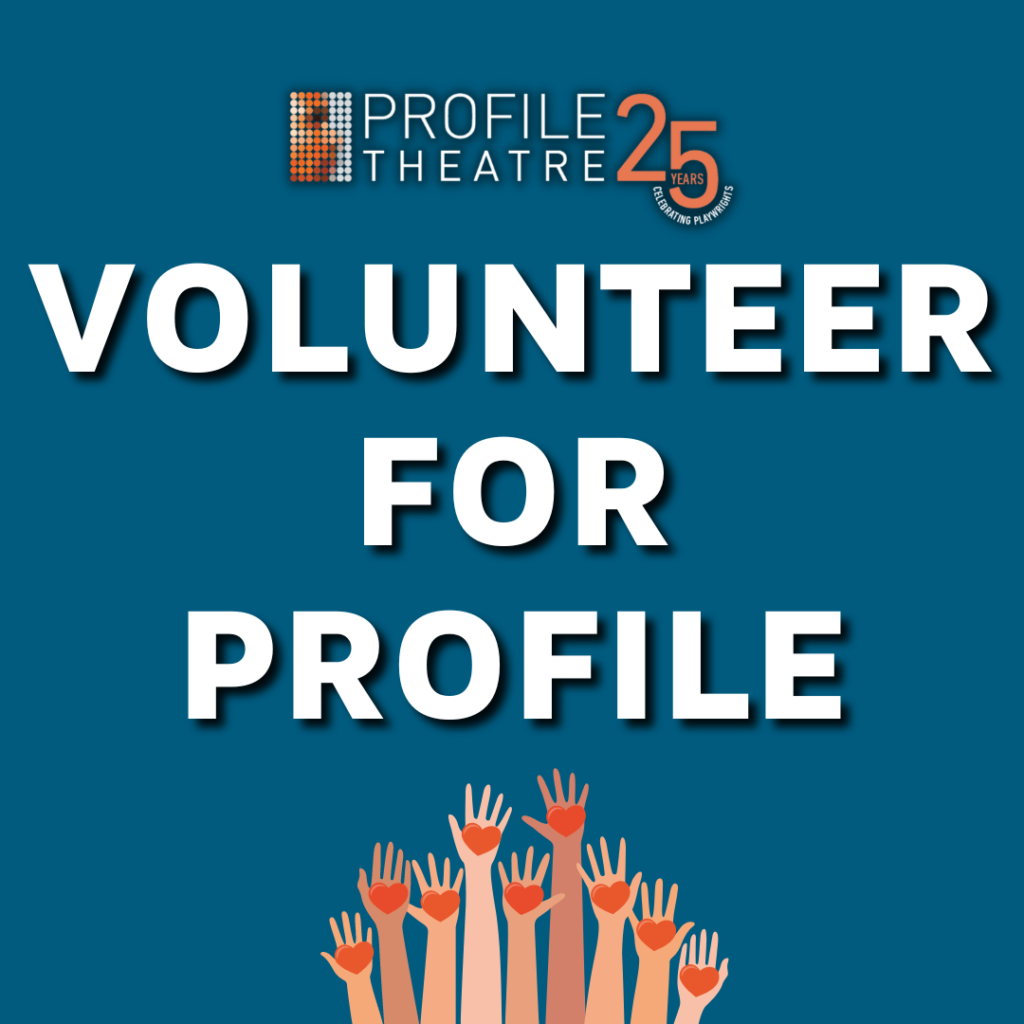Cassie Greer | Stage Manager
Cassie Greer (she/her) is excited and grateful to be working with this fantastic team of artists on Mother Russia! A theater-maker-of-all-trades, Cassie received her training in the MFA Acting program at Florida Atlantic University; the BA Theatre, History, and Music programs at Goshen College; and in the 9th Certification group of Fitzmaurice Voicework® teachers. She has worked professionally around the country as a stage manager, actor, director, designer, administrator, educator, and facilitator; find details on her various interests and projects past, present, and future at cassiegreer.com. Big love and thanks to the whole Profile team, and to Tylor and Gwen. @cassiegreer
Bets Swadis as Evgeny
Bets (they/them) is a theatre artist based in Portland, OR. Originally from Philadelphia, local performance credits include: Leaf in Spelling Bee* & Alvin in Band Geeks! (BRTC); Hal in Proof (PCTG); Dad / Jard in In The Basement and Bex/Brad/Claudia in Best Available, PCS’s JAW Festival & Margaret Mead in Hair (PCS).*
(*BWWAward Nominee, Best Supporting Performer in a Musical.)
As a playwright, Bets’s work was published in Masque & Spectacle, a literary journal. A workshop production The Mighty Marching Meerkats premiered during FUSE’s 2024 OUTWright Fest; Brave/Enough was produced in April 2025 by PDXPlaywrights as part of Portland’s Fertile Ground Festival 2025.
Bets is a proud member of Actors’ Equity Association.
Ashley Song as Katya
Ashley is stoked to return to Profile Theatre (and be directed by Josh for the first time!) after appearing in Reggie Hoops in 2024. Previous credits include Portland Center Stage at The Armory, Portland Shakespeare Project, Corrib Theatre, 21ten Theatre, and the Fertile Ground Festival of New Works. Locally she has appeared in the staged readings of unbound: a bookish musical and Half, and Who’s Afraid of Virginia Woolf? at PCS and The Other Place at 21ten Theatre. She received her BFA from New York University. She is also the co-founder of Desert Island Studios. IG and TikTok: @ashleysongofficial @desertislandstudiospdx
Diane Kondrat as Mother Russia
Diane Kondrat is happy to be back with Profile. Her last roles with the company were as Hitler, Ronald Reagan, and Queen Elizabeth in Sarah Ruhl’s Passion Play. Recently Kondrat was seen in The Other Place at 21ten Theatre, in Beckett’s Happy Days, directed by Patrick Walsh, and in Mary Jane at Third Rail Repertory, where she is a proud company member. Her theatrical experience includes improv, directing, producing, playwrighting, and sketch comedy with Sam Dinkowitz’s Spectravagasm. Visit www.dianekondrat.com for more!
Orion Bradshaw as Dmitri
Orion Bradshaw is a professional Storyteller, Licensed Teacher, Equity Facilitator, Social Justice Advocate, and a proud Union member. Orion spent 6 total seasons as an Actor and Teacher at the renowned Oregon Shakespeare Festival, and relocated to his beloved Portland in 2011 to co-found Post5 Theatre. He then earned his Master of Arts in Teaching degree from his alma mater, Southern Oregon University, in 2019. Orion has been a professional Theatre Artist and Educator for over 17 years, currently serving as a licensed Substitute Teacher for Portland area schools, as well as an Equity Facilitator with Matthew Reynolds Consulting, and local freelance Artist.
Lean in. Laugh. Think. Converse. Enjoy the Play!
Hayley Ferrell (They/She), Production Assistant
Hayley is a Portland based Stage Manager. They most recently Stage Managed Corrib Theater’s production of Waiting for Godot. They have worked on a number of Profile theatre’s productions some of their favorites include: The Oldest Profession by Paula Vogel, Appropriate by Brandon Jacob Jenkins, The Elaborate Entrance of Chad Diety by Kristoffer Diaz, and how to make an American Son By christopher oscar peña. They have previously worked as a House Manager, Stage Manager, and Assistant Stage Manager for companies such as Corrib Theatre, PCC Performing Arts Center, Portland Baroque Orchestra, and Chamber Music Northwest. They are more than happy to have the opportunity to work with this wonderful group of artists and thank you for coming out to the theatre!
David Levine (He/Him), Stage Manager
David Levine is a lifelong Portlander and former teacher who comes from a long line of educators-turned-actors, dating back to 1950’s summer camp in the Catskills. Recent stage manager credits include: Thurgood at Cleveland Play House; Evolve with The Red Door Project; awe/struck and our orange sky at Profile Theatre; and Amelie at Portland Playhouse.
Abrar Haque (He/Him) as Amit
Abrar Haque is a performer and writer based in New York City and raised in Portland, Oregon. NYC Credits: Public Obscenities (Drama Desk Award) at Soho Rep and Theatre for a New Audience; development work at The Public Theater, Egg & Spoon Theater. Regional Credits: Woolly Mammoth, Artists Rep, Portland Shakes, Bag&Baggage. B.A in Economics from UC Berkeley. @abrarhawk19
Jonathan Cullen (He/Him) as Frenchman
Jonathan was a professional actor in the UK for three decades, performing with the Royal Shakespeare Company, National Theatre, Shakespeare’s Globe, among many others, in repertoire ranging from classics to new plays, and everything in between.
He spent the summer with the Whidbey Island Shakespeare Festival, playing the title role in King Lear, and Phillis the maid in The Lucky Chance by Aphra Behn, and then returned to Portland to appear as Pozzo in Corrib Theatre’s production of Waiting for Godot.
He dedicates this show to the people named on his tattoo: they know who they are.
Veda Baldota (She/Her) as Suraiya
Veda Baldota is a South Asian actor who just graduated with a MFA in acting from Columbia University.
Regional credits: Pride and Prejudice (Chautauqua Theatre Company), Much Ado About Nothing (San Francisco Shakespeare festival) and new play workshop of Kate Hamill’s, The light and the dark (Chautauqua Theatre Company), Give me your answers, Do (Reading at Irish Rep Theatre), A Muslim in the Midst (Reading at ASDS Rep Theatre), Ender’s Gay (Reading at TheatreLab)
She has also been a part of some award winning short films in New York.
Along with acting she loves to spend time in nature, go on spontaneous adventures, play pranks and build relationships.
Thank you mom.
vedabaldota.com or IG: @vedabaldota












